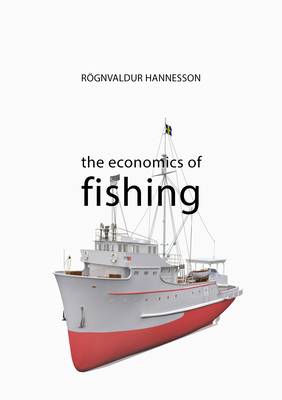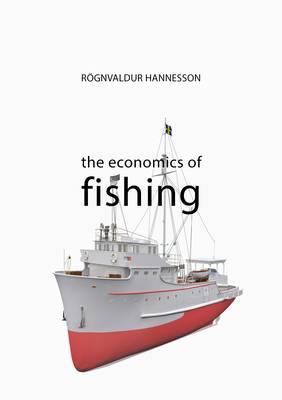
En raison d'une grêve chez bpost, votre commande pourrait être retardée. Vous avez besoin d’un livre rapidement ? Nos magasins vous accueillent à bras ouverts !
- Retrait gratuit dans votre magasin Club
- 7.000.000 titres dans notre catalogue
- Payer en toute sécurité
- Toujours un magasin près de chez vous
En raison de la grêve chez bpost, votre commande pourrait être retardée. Vous avez besoin d’un livre rapidement ? Nos magasins vous accueillent à bras ouverts !
- Retrait gratuit dans votre magasin Club
- 7.000.0000 titres dans notre catalogue
- Payer en toute sécurité
- Toujours un magasin près de chez vous
31,45 €
+ 62 points
Description
The fishing industry's critical dependence on the natural environment makes it very different from other economic sectors. The industry comprises everything from operator-owned small boats to large corporations operating fleets of high-tech trawlers or purse seiners processing their catches into finished products. All however exploit a common resource.
This book provides an introduction to the economics of the fishing industry and the role of fisheries in the world economy. It focuses primarily on capture fisheries, although the discussion brings in wider acquaculture for comparative analysis. Trade in fish products and how it has developed is highlighted, as well as the main rules governing the fish trade. The basic concept of sustainable yield is explained and how economically optimal exploitation is used to avoid overexploitation. The book discusses the variability of fish stocks and uses case studies of some spectacular stock crashes that have occurred. The law of the sea is explained and how the movement of fish stocks across ocean boundaries has meant the development of government and inter-governmental bodies to manage international fisheries. At the heart of this management lies the quota system and the book outlines how it works and how, controversially, such quotas have become transferable and have acquired elements of private ownership. The regulation of the fishing industry is shown to be fundamental to prevent the possible total depletion of fish stocks, yet political pressure from the industry and from pressure groups can make the industry less efficient than it could be. Wider questions about whether fisheries management should only be about food production are also considered. The book offers readers a comprehensive and rigorous guide to the economic considerations motivating the industry and highlights the environmental challenges facing the sector as global consumption of fish continues to rise.Spécifications
Parties prenantes
- Auteur(s) :
- Editeur:
Contenu
- Nombre de pages :
- 208
- Langue:
- Anglais
- Collection :
Caractéristiques
- EAN:
- 9781788213448
- Date de parution :
- 21-01-21
- Format:
- Livre broché
- Format numérique:
- Trade paperback (VS)
- Dimensions :
- 147 mm x 208 mm
- Poids :
- 294 g

Les avis
Nous publions uniquement les avis qui respectent les conditions requises. Consultez nos conditions pour les avis.






